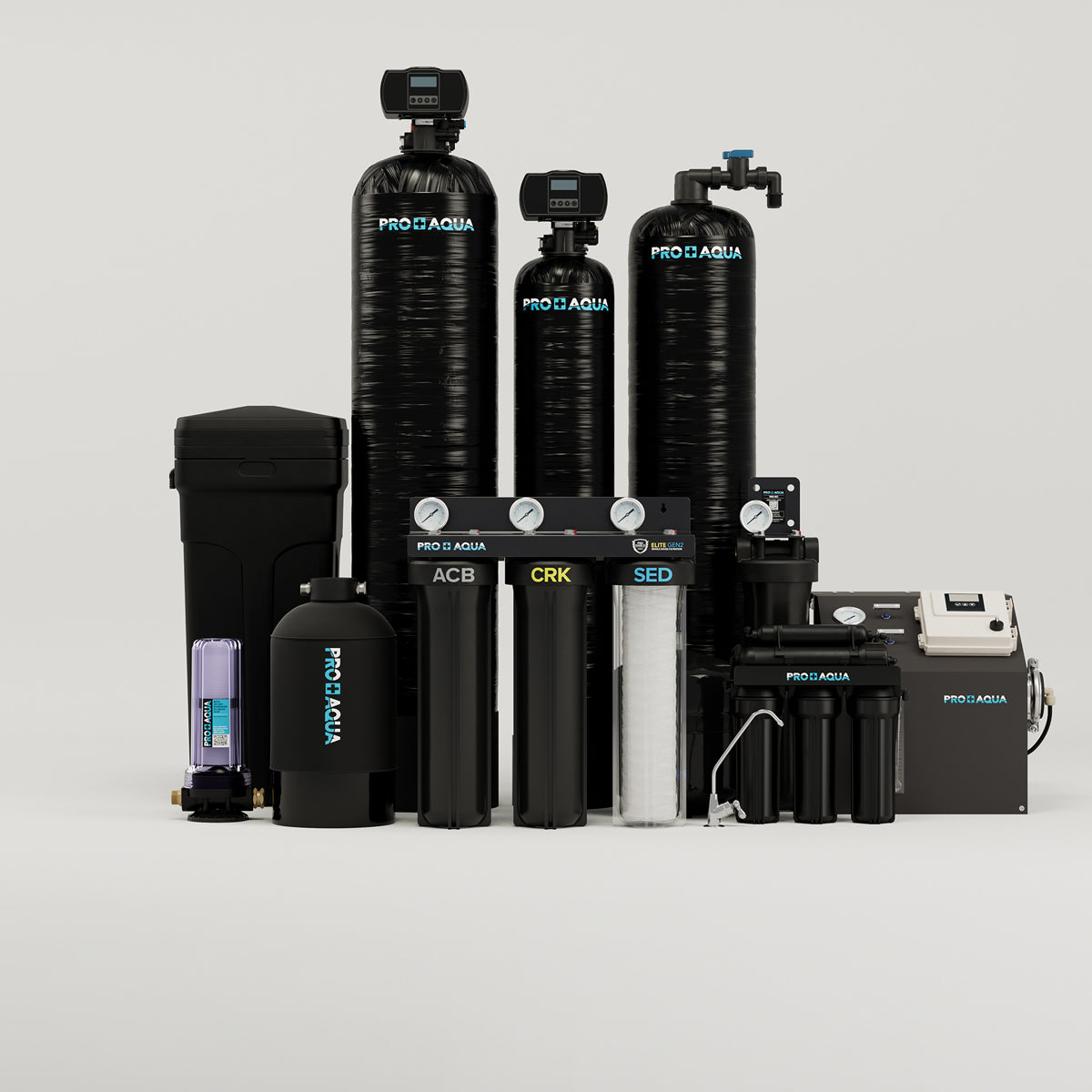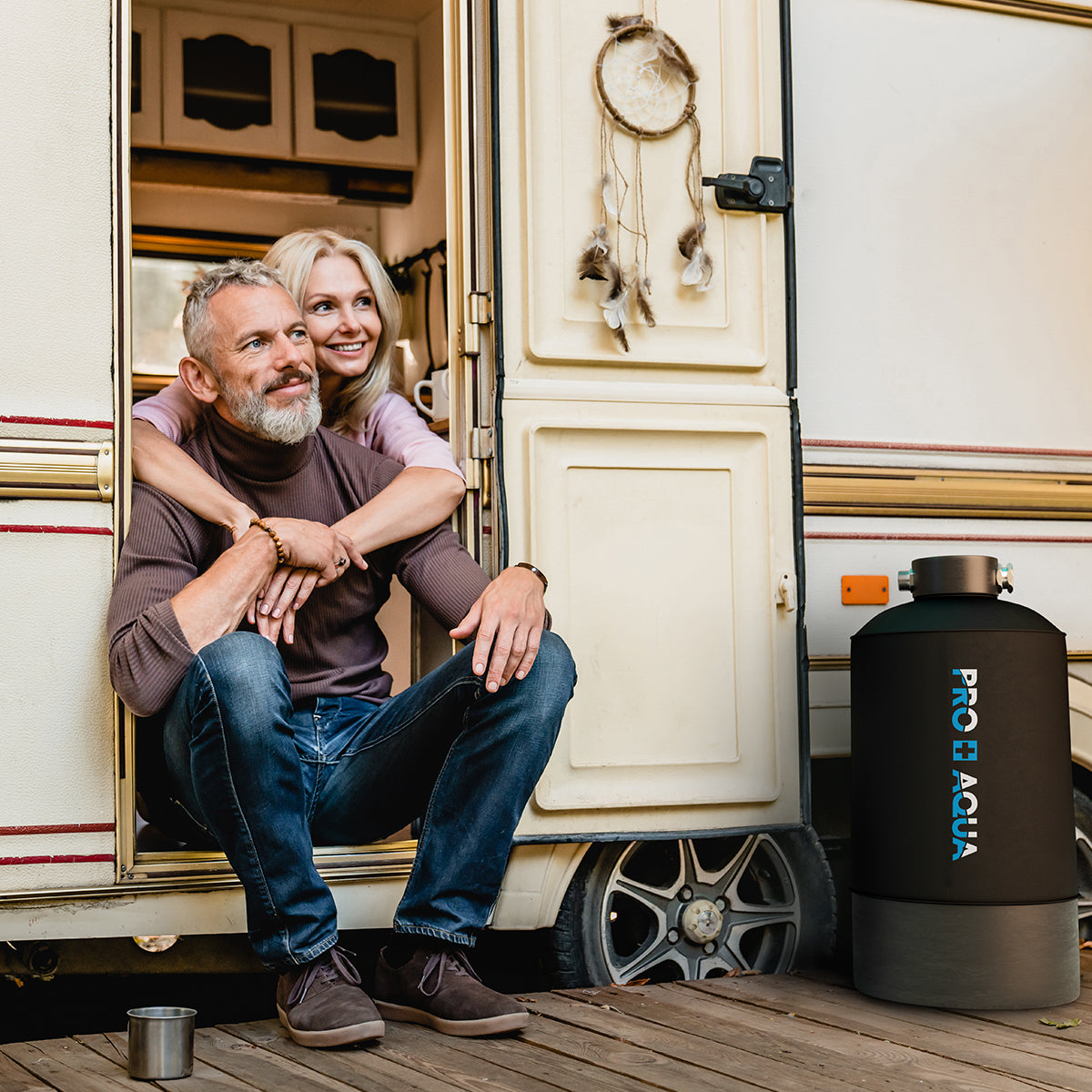TL;DR
- Phoenix blends surface and groundwater sources, including the Colorado and Salt rivers.
- Tap water meets federal standards but contains hardness and chlorine byproducts.
- Hard water, aging pipes, and contaminants like PFAS are ongoing concerns.
- Filtering your water at home can greatly improve taste, safety, and appliance life.
Did you know Phoenix tap water is technically safe to drink—but many residents still avoid it? It meets federal safety standards, but the taste, smell, and hardness aren't ideal. If you're a Phoenix resident wondering what’s in your water, this article breaks down the facts and solutions.
Why Water Quality Matters in Phoenix
Phoenix ranks as one of the fastest-growing cities in the U.S., but sits in an arid desert climate where water is a commodity. As demand increases and sources become limited, understanding water management helps protect your home, health, and appliances.
Overview of Phoenix Water Sources
Surface Water
Most of Phoenix's water comes from surface sources:
- Colorado River via the Central Arizona Project (CAP)
- Salt and Verde Rivers via the Salt River Project (SRP)
Groundwater
Groundwater from local aquifers supplements the supply, especially during droughts. This water is often more mineral-rich, contributing to hardness.
Blended Supplies
Phoenix mixes water from these sources to create a balanced, consistent supply before treatment. This blend changes seasonally and impacts taste and mineral content.

Phoenix Tap Water Quality
Treatment Processes
The City of Phoenix uses a multi-stage process to make tap water safe:
- Coagulation & Sedimentation: Removes dirt and particles
- Filtration: Eliminates smaller particles and microorganisms
- Chlorination: Disinfects the water
- Fluoridation: Added to support dental health
Quality Standards & Monitoring
Phoenix water is tested daily and must comply with the EPA’s Safe Drinking Water Act. Local oversight is handled by the Arizona Department of Environmental Quality (ADEQ) and the City of Phoenix Water Services Department.
Typical Contaminants & Levels
- Chlorine is used for disinfection, often leaving behind a chemical taste or smell.
- Hardness is high due to calcium and magnesium, averaging 210–350 ppm.
- Disinfection byproducts, like trihalomethanes (THMs), may form during treatment but are kept within legal limits.
Safety for Daily Use
Phoenix tap water is safe for general use—cooking, bathing, and cleaning. However, its taste, smell, and hardness often drive residents toward bottled or filtered options.
Phoenix Drinking Water Quality
Tap vs. Bottled
Many people prefer bottled water, believing it to be cleaner. However, bottled water is regulated by the FDA, while tap water falls under stricter EPA oversight. In truth, both are safe—but taste and trust vary widely.
Filtered Water Systems
Filtering your water at home can drastically improve quality. Reverse osmosis (RO) systems, in particular, remove chlorine, heavy metals, and other contaminants.
Recommended: PRO+AQUA Premium 100 GPD RO System
- Removes up to 99% of contaminants.
- Connects easily to fridges, ice makers, and coffee machines.
- Perfect for medium to large houses or small businesses.

Recommended: PRO+AQUA Whole House Filter System
- Stage 1 removes sediments like dirt, sand, and rust.
- Stage 2 removes dissolved metals like iron and lead.
- Stage 3 removes bad tastes/odors and organic chemicals like chlorine.
- Perfect for city or well water homes.
Consumer Confidence & Perception
Public perception often lags behind technical safety. Residents cite chlorine taste, scale buildup, and unclear reports as reasons for concern, even when data shows compliance.
Water Quality Issues in Phoenix
Hardness & Scaling
Phoenix has hard water, which can damage appliances and plumbing over time. Water hardness is what leaves spots on dishes and glassware.
Recommended: PRO+AQUA Premium 80K Grain Softener System
- Removes hard minerals like calcium and magnesium.
- Makes skin and hair softer and more hydrated.
- Prevents scale buildup in plumbing and appliances.
- Perfect for large houses or small businesses on city or well water.

Recommended: PRO+AQUA Premium Salt-Free Softener System
- Does not require salt or electricity.
- Perfect for those on low-sodium diets or households focused mainly on scale prevention.
Contaminants of Concern
While generally within legal limits, trace levels of the following can be found:
- Arsenic
- Lead (from old pipes)
- Nitrates
- PFAS ("forever chemicals")
Aging Infrastructure
Some neighborhoods still rely on older plumbing systems that may corrode and leach metals. Phoenix continues to upgrade infrastructure, but issues remain.
Drought & Climate Stress
With growing demand and shrinking supplies, Phoenix must adapt through conservation, desalination exploration, and advanced treatment technologies.
Public Health Implications
Most residents are not at risk, but vulnerable populations (infants, elderly, immunocompromised) may benefit from filtered water.

Mitigation & Improvement Efforts
Municipal Actions
Phoenix publishes real-time water testing and has invested in upgraded treatment plants to ensure consistent safety.
State & Federal Support
Programs from the ADEQ and EPA fund upgrades, enforce quality standards, and help communities adapt to new challenges.
Community Involvement
Residents can attend public meetings, subscribe to water alerts, and participate in conservation efforts.
Practical Advice for Residents
Simple Home Practices
- Let tap water run for 30 seconds each morning.
- Clean faucet aerators and shower heads.
- Replace water filters regularly.
Choosing a Filter or Bottled Water
|
Concern |
Suggested Filter |
Notes |
|
Hardness |
Reduces scale buildup |
|
|
Taste/Odor |
Improves drinking quality |
|
|
Contaminants |
Most thorough filtration |
Stay Informed
- Visit the City of Phoenix Water Quality page.
- Sign up for ADEQ public notices and updates.
Future Outlook
Phoenix will continue growing, and so will its water needs. Innovations in treatment, conservation programs, and advanced filtration technologies will help ensure clean, safe water in years to come.
Conclusion
Phoenix water is safe, but it’s far from perfect. With rising concerns around hardness, contaminants, and taste, now’s the time to get proactive. Understanding your water and taking simple steps at home can make a huge difference for your health, home, and peace of mind.
FAQs
Is Phoenix tap water safe to drink?
Yes, it meets EPA standards, but filtering is recommended for taste and added protection.
Why is Phoenix water so hard?
Minerals from the Colorado, Salt, and Verde rivers contribute to high hardness levels.
Does Phoenix add fluoride to its water?
Yes, fluoride is added to promote dental health, in line with public health standards.
What’s the best water filter for Phoenix homes?
Use a whole house system for hardness and an RO system for drinking water.
Where can I find the latest Phoenix water quality report?
You can view it on the City of Phoenix Water Services site.









Leave a comment
This site is protected by hCaptcha and the hCaptcha Privacy Policy and Terms of Service apply.